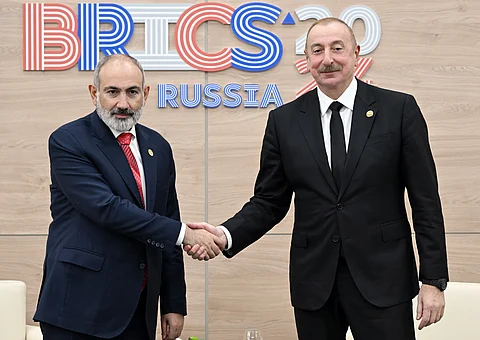

Armenian Prime Minister Nikol Pashinyan and Azerbaijani President Ilham Aliyev are set to meet on Friday at the White House in Washington, D.C., for trilateral peace talks hosted by President Donald Trump. Both leaders are scheduled to hold separate bilateral meetings with Trump before convening for a joint session, during which they are expected to sign a memorandum of understanding (MoU) or “letter of intent” committing to the pursuit of peace.
While the meeting is being framed as a potential diplomatic breakthrough—particularly as Trump positions himself as a global peacemaker and eyes a Nobel Peace Prize—the agreement falls short of a formal peace treaty. Sources indicate the MoU will be largely symbolic, lacking the legal weight of a finalized accord between Yerevan and Baku.
Back on March 13, the Armenian Foreign Ministry announced that both countries had agreed on the text of a peace treaty. Though Azerbaijan appeared to confirm the development, it has since issued additional demands. One of Baku’s key conditions remains Armenia’s amendment of its constitution to remove references to the unification of Armenia with Nagorno-Karabakh—particularly language found in the 1990 Declaration of Independence. Azerbaijan considers such language a territorial claim that must be renounced before a final treaty can be signed.
Another sticking point is Azerbaijan’s insistence on securing an extraterritorial corridor through Armenia’s southern Syunik Province. This would connect mainland Azerbaijan to the Nakhchivan exclave and onward to Turkey. Armenia has consistently rejected the demand, including a recent U.S. proposal to lease the corridor to a private American company for 99 years, which was also declined.
Analysts suggest that Friday’s summit is driven more by political optics than substance. With limited progress expected, the meeting may serve primarily to provide President Trump with a high-profile photo opportunity and reinforce his image as a broker of peace, rather than significantly advance negotiations between the two South Caucasus nations.